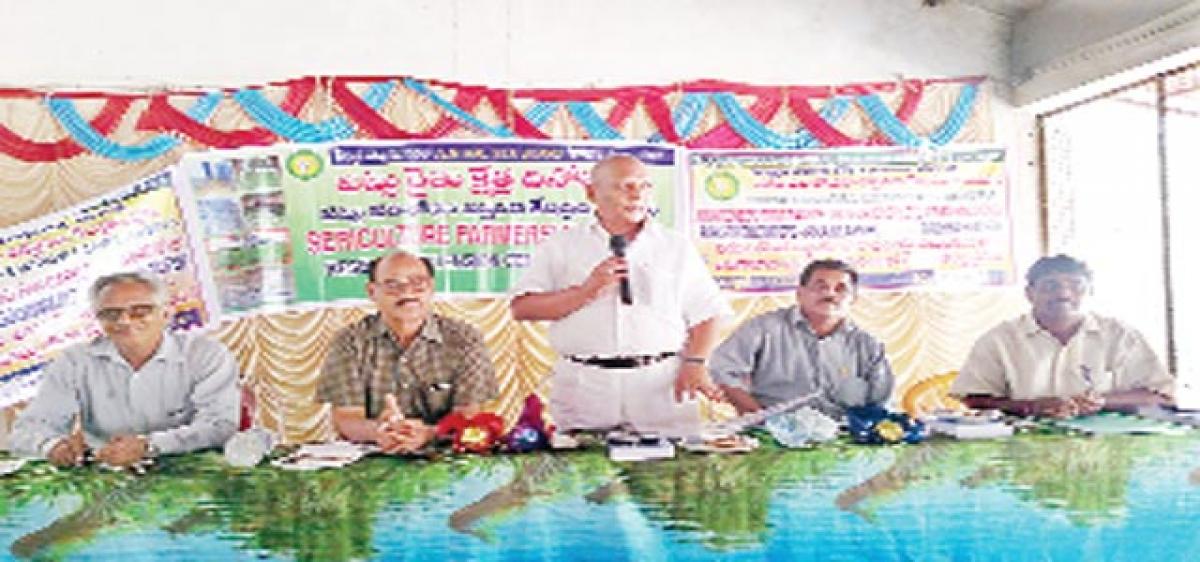Just In

Pithapuram: It looks like sericulture industry has made rapid strides last year as evidenced by production of 1, 500 tonnes of raw yarn, which is 65 per cent more than the last year’s yield, in the State, according to Central Silk Board joint director Chinne Satyanarayana.
Pithapuram: It looks like sericulture industry has made rapid strides last year as evidenced by production of 1, 500 tonnes of raw yarn, which is 65 per cent more than the last year’s yield, in the State, according to Central Silk Board joint director Chinne Satyanarayana.
The sericulture field day was celebrated at the Silk Research Centre at Chebrolu in the mandal on Wednesday. He said that Chebrolu cluster is the most important of 11 clusters in the region.
He said that awareness programmes are being conducted cluster-wise to sensitise farmers on the pest management in mulberry cultivation.
Referring to night temperature dipping to 14 and 15 degrees, he said ideal temperature for mulberry cultivation is between 25 and 30 degrees and 60 per cent humidity in air.
“How to regulate temperature is being taught at the awareness programmes. The Silk Board, which is supplying certain pesticides free of cost, is concern over overdose of application of the chemical fertilisers by the farmers,” he added.
Their indiscriminate use is counterproductive, he pointed out. The G4 mulberry seed is as useful as V1 variety of the seed. Plant-friendly insects are being released into the fields as an effective pest control measure, he said.
However, demonetisation had adversely affected the silk production about a week. It is targeted to sensitise 30,000 mulberry farmers on the unified cash payment system. Payments to be made in lieu of purchase of silk cocoons will be made only through online, he said.
Deputy director Koteswara Rao said that silk cocoons marketing facility has been provided at the Chebrolu centre. The mulberry farmers are earning not less than Rs 3 lakh an acre. Of 1,250 acres under the mulberry cultivation, Gollaprolu mandal accounts for cultivation of the crop in 850 acres.
The Chebrolu center’s purchasing capacity has increased to 2.5 tonnes from the mere 500 kgs. Silk reelers from as far as Madanapalli and Goranta have been visiting Chebrolu to buy the cocoons.
Summing it up, scientist TVS Srinivas said that bivoltine variety of silk-worm rearing is beneficial to the farmers compared to cultivation of native variety. In 120 of 170 clusters this variety is being reared, he added.
He also said that 100 cocoons should produce at least 10 kg of yarn. Bivoltine variety has demand in international markets compared to other varieties.
Earlier, Satyanarayana Raju and Koteswara Rao were felicitated by farmers.

© 2024 Hyderabad Media House Limited/The Hans India. All rights reserved. Powered by hocalwire.com







